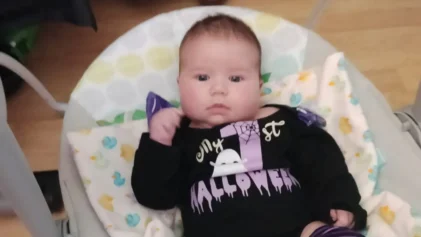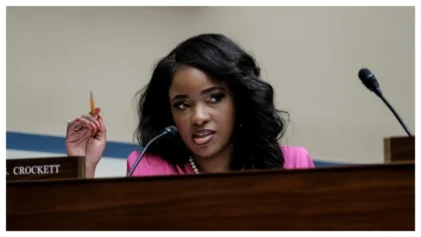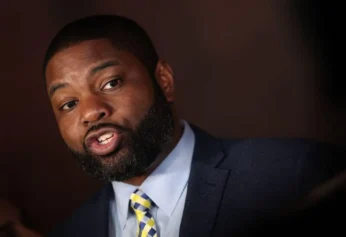A Black police officer who once sued the Boston Police Department after his peers on the force assaulted him will now lead the force that he filed a civil rights lawsuit against. Community leaders and other agents of law enforcement celebrate his new position, calling him “a man of high honor and integrity.”
With a population of 689,326, Boston is the 22nd largest city in the nation. Its police force boasts 808 civilian members as employees and 2,015 police officers on the roll, patrolling over 90 square miles each day, helping the city for the fourth year in a row see low crime rates.
While census data claims that over 52 percent of the city identifies as white, the city is relatively diverse, with less than a quarter percent of the population classified as Black, 19.5 percent as Hispanic or Latino, and 9 percent as Asian. Still, law enforcement does not reflect accurately the population they are sworn to serve and protect.
The city is hoping this will change with their new hire of a Black police commissioner.
Recently appointed by Boston Mayor Michelle Wu, Michael Cox, 57, accepted the job where he cut his teeth as an officer in 1989 with ambitions to keep the city’s crime on a historic and relatively progressive downward trajectory and to help diversify the department, according to The Associated Press.
Wu said she is optimistic she made the right choice, adding, “There was just such a sense of hope and excitement and joy about what we could get done together, even tackling very complex and quite entrenched systems.”
No one knows about the complex and entrenched systems in the BPD more than Cox.
After serving as the police chief in Ann Arbor, Michigan, for three years, Cox is set to head up the same force where he was once beaten down by fellow officers in 1995, surpassing three other finalists for the job.
Twenty-seven years ago, while working undercover in the city’s gang unit and dressed in plain clothes to blend in with the community, the then-29-year-old and his fellow officers were radioed about a shooting.
Cox was the first person to see the suspect.
Despite being in streetwear (a pair of jeans and a sweatshirt), he joined the pursuit of the person believed to be a part of the crime. In an attempt to get away, the man tried to scale a fence, but Cox was right behind him.
Just as he aimed to grab the man, the young officer was hit from behind.
Fellow officers, not aware that he was not the alleged shooter, commenced kicking and punching Cox so brutally he wound up suffering head injuries and kidney damage.
As a result, Cox filed a civil rights lawsuit against the department, believing that the other officers used excessive force. He secured a $1.3 million settlement from the city.
In Dick Lehr’s book about the incident, “The Fence: A Police Cover-Up Along Boston’s Racial Divide,” Cox said he was humiliated by the beatdown.
“There’s no reason to treat anyone like that. And then to just leave them. And if they do it to me — another police officer — would they do it to another person if they got away with it?” Cox was recorded saying.
Initially, members of the department tried to cover it up, saying his injuries were from slipping on ice, which caused him to fall and crack his head. But Cox spoke out and as the incident became more and more public, he started experiencing more and more harassment.
However, he never left. After he sued the department, he chose to stay on and serve within the ranks for what became 30 years with BPD, believing he could change whatever dysfunctions existed in the force from the inside.
Over those three decades he spent 15 years in a variety of roles, including as the bureau chief and superintendent of the bureau of professional development. Cox also served in the aforementioned gang unit, intelligence unit, and internal affairs.
Cox also helped train recruits after being placed over the Boston Police Academy, the Firearms Training Unit, and the Police Cadet Unit, bearing the distinct honor of also swearing in new officers.
On Wednesday, July 13, he said to reporters after the appointment was announced, “Since then in 1995, I have dedicated my life to making sure that both the Boston police department and policing, in general, has grown and learned … to make sure that we have structures and mechanisms in place to make sure that we never repeat that kind of incident against anyone.”
An emotional Cox said, “The officers need someone to help support them. I’m going to be their biggest cheerleader.”
Suffolk County District Attorney Kevin Hayden, a top prosecutor for Boston and its surrounding communities, applauded the decision to hire a police veteran he called “a man of high honor and integrity.”
Hayden said in a statement, “The journey of Michael Cox from being beaten by fellow Boston Police officers to his appointment as Commissioner of the Boston Police Department is emblematic of criminal legal reform.”
It also is emblematic of an intentional move by the department to diversify its ranks from the executive office on down.
This comes a year after the local NBC affiliate published a scathing report revealing the lack of progress the department has made in breaking up the predominately white face of law enforcement, claiming that it’s not because people of color aren’t applying.
The report stated, “Black and Latinx candidates still consistently get passed over in favor of white applicants over decades-old minor brushes with law enforcement or seemingly arbitrary reasons, advocates say.”
It continued, “Some critics say the city’s talk of inclusion rings hollow while it continues to fight a long-running case won by a group of Black officers over a promotional exam a judge found was discriminatory.”
Larry Ellison, a Black Boston police detective who’s served the BPD for close to 40 years, said he never felt “completely accepted.”
He said while it has been an honor for him to serve as an officer, he can see that the department turns “a blind eye, and then when things explode, we try to do things piecework and we try to do symbolic things.”
When asked about Cox’s hire, the member of the state’s police oversight commission and former head of the Massachusetts Association of Minority Law Enforcement Officers, said Cox will be great for the job, warning people not to misjudge him off any superficial engagement.
“He’s very soft-spoken but I think people shouldn’t misinterpret that as he’s someone who won’t get the job done,” Ellison affirmed to WBUR.
The job won’t be easy, according to Larry Calderone, the president of the Boston Police Patrolmen’s Association.
“Morale is the worst I’ve seen it in my 28 years. They feel underappreciated,” Calderone stated. “They have a lack of respect from their elected officials, not all of them, but a handful on the city council. So, there is a big morale problem in the department. So, I think Commissioner Cox has his hands full with lack of personnel, lack of morale.”
In 2021, the highly sought-after law enforcement leader was one of three finalists to lead the Detroit Police Department. Cox will take the office as the police chief on Monday, Aug. 15.


